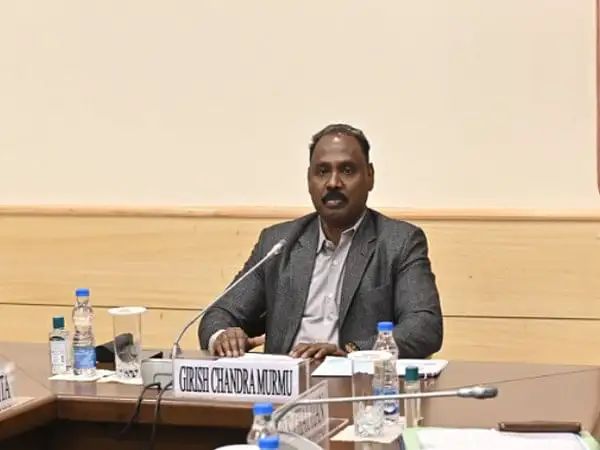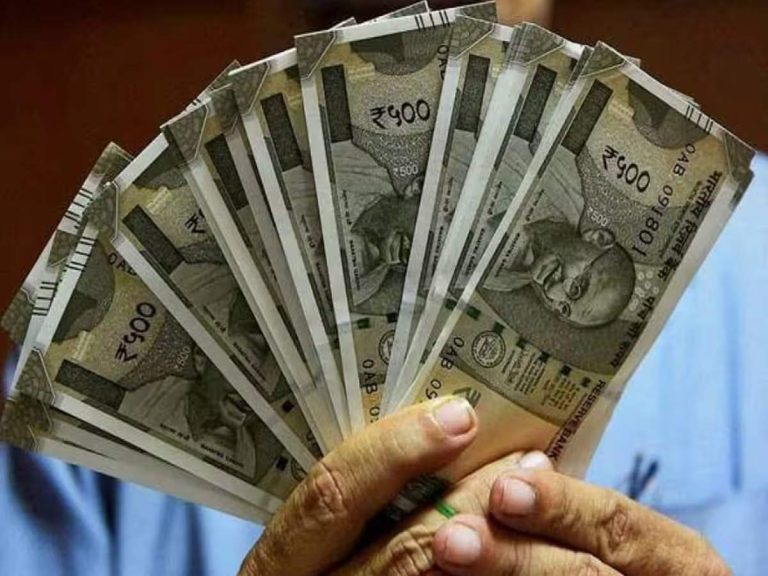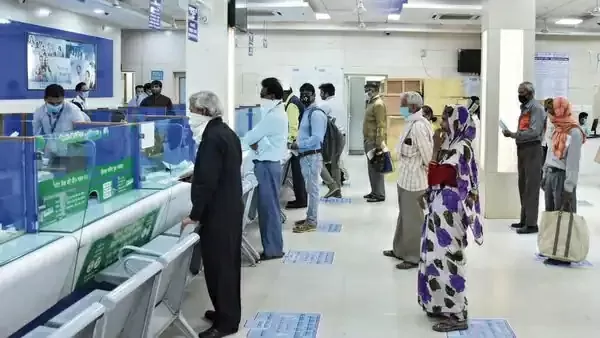India committed to development choices along low carbon pathways, says CAG Murmu
In his opening remarks at Seminar on Climate Financing here, he said the event is a recognition that climate change is no longer a problem “we are leaving for our future generations; but a phenomenon we are increasingly experiencing and have to contend with”.
As climate change intensifies, so does the urgency for robust climate finance mechanisms to fund adaptation, mitigation, and resilience-building efforts worldwide, he said.
The CAG said that WHO predicts that climate change is expected to cause approximately 250000 additional human deaths per year, between 2030 and 2050.
“This grim forecast warrants a comprehensive solution encompassing both climate mitigation and climate adaptation measures. Climate mitigation involves reducing or preventing greenhouse gas emissions, while adaptation entails strategies to adjust to the impacts of climate change. Both require targeted climate finance, ensuring a balanced and holistic approach to combatting climate challenges.”
He said annual climate finance needs are estimated to increase substantially, reaching well beyond USD 10 trillion annually by 2050.
“Failing to meet these financial demands will exacerbate the rise in global temperatures, simultaneously intensifying socio-economic consequences of climate-related disasters. Unfortunately, despite the stark cost-benefit analysis, climate finance remains significantly inadequate.”
He said that acknowledging the significant macroeconomic costs of the physical impact of climate change, the New Delhi Leaders Declaration of the G20 affirmed scaling up blended finance and risk-sharing facilities, including the enhanced role of multilateral development banks in mobilizing climate finance.
The G20 summit endorsed the Green Development Pact, which included elements relating to financing such as doubling of adaptation finance by 2025.
Building on the stance adopted at COP 26 where India had highlighted the vexatious issue of climate finance while presenting the Panchamrit of India’s climate action and the mantra of LiFE – Lifestyle for Environment to combat climate change, at COP 28 in 2023, India sought a clear road map for climate finance as an imperative for delivering on quantified goals. India has consistently voiced the concerns of the Global South, whereby capital needs to flow from the Global North to climate investments in developing countries, he said.
“From all this, it is clear that climate finance is a scarce resource with alternative uses. No wonder the UNFCCC and Paris Agreement’s monitoring, reporting, and verification mechanisms are vital for trust and transparency among nations. Transparent reporting builds confidence, ensures accountability, and globally assesses financial and technological support from developed to developing nations,” he said.
“The scarcity of finance requires development of a green finance ecosystem, including innovative financial instruments, green budgeting, targeted interventions, incentives and monitoring. As scarcity warrants optimal utilisation, this green finance needs to be combined with the SAI’s role of facilitating transparency and accountability. SAIs with their mandate of stewards of public finance, have the responsibility and the opportunity to ensure that financial resources allocated to address climate change are used transparently, efficiently, and effectively,” he added.
Murmu said SAIs need to evaluate the efficiency of financial mechanisms and scrutinize overall governance and decision-making processes involved in the broad spectrum of public sector climate financing, to ensure that these are accountable, participatory, and responsive to the needs of affected communities. The audits should bring out recommendations to ensure that investments deliver the intended environmental and social outcomes, and benefits reach the communities most vulnerable to climate change impacts.
“India is committed to development choices along low carbon pathways, coupling socio-economic developmental goals with sustainability goals, as exemplified by the National Action Plan on Climate Change (NAPCC) 2008. The Delhi Metro Network’s reliance on solar energy illustrates implementation of these principles. The Delhi Metro meets 60 per cent of its daytime energy demand through solar power generated at the Ultra Mega Solar Park in Rewa, Madhya Pradesh,” he said.
Although the 3rd largest energy consuming country in the world, India stands 4th globally in Renewable Energy Installed Capacity (including Large Hydro). The National Adaptation Fund for Climate Change and the National Clean Energy Fund, are instrumental in driving India’s transition towards a low-carbon economy.
“Climate action must percolate to private sector also. Similar initiatives are expected to be adopted by private sector which will prove to be a force multiplier. As SAI India, we have undertaken multiple audits related to environmental and climate issues in the country. Some of these audits include Compliance audit on Compensatory Afforestation in India; Performance audits on the Renewable Energy Sector in India; Environmental Clearance and post Clearance Monitoring; Ground Water Management and Regulation and Conservation of Coastal Ecosystems, etc. However, accountability in climate finance presents unique challenges, and SAIs need tailored methodologies and risk assessment tools to evaluate the efficiency, effectiveness, and impact of climate finance initiatives…
“Impactful audits in this arena have to address multiple dimensions, focussing on outcome. I am optimistic that over time, such audits would evolve and be followed by rigorous introspection, critically assessing our achievements and shortcomings. This will help us work towards refining our strategies, strengthening our resources, and qualitatively improving our recommendations,” he said.
Murmu said as public auditors, there is need to strive for responsible stewardship of climate finance, where investments not only bring returns but also contribute to preserving our planet.
The seminar, attended by distinguished panelists and officers, both in person and virtually, underscored the imperative for coordinated global action in financing adaptation, mitigation, and resilience-building efforts. (ANI)
This report is auto-generated from ANI news service. ThePrint holds no responsibility for its content.






